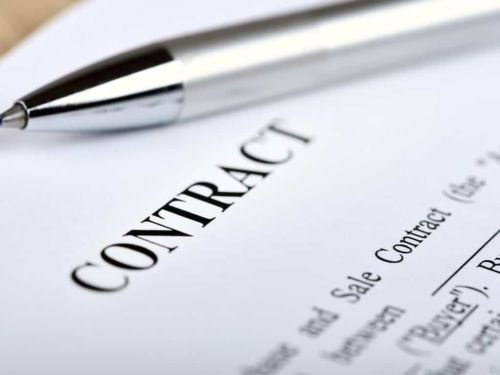Menu
Can Filing For Chapter 7 Bankruptcy Impact My Current Leases and Contracts?
March 18th, 2021

Perhaps you have a lease on a vehicle or are leasing equipment for your small business. You may wonder if you file for Chapter 7 bankruptcy, will your current leases and contracts be impacted? The answer depends on if the lease is unexpired or you have a current executory contract. The Jones Law Firm explains what you need to know about leases, contracts, and bankruptcy.
What is an unexpired lease or executory contract?
In its most simple terms, unexpired leases and executory contracts are those which are still in effect, and therefore, both parties involved must adhere to its terms. Examples of leases and contracts include:- Car Leases
- Residential Leases Or Rental Agreements
- Business Leases Or Rental Agreements
- Service Contracts
- Business Contracts
- Contracts Of Sale For Real Estate
- Personal Property Leases, Such As Equipment For A Small Business
- Copyright And Patent License Agreements
- Leases Of Real Estate Both Surface And Underground
- Insurance Contracts
What does it mean to assume or discharge a lease or contract?
If you have filed for Chapter 7 bankruptcy while still under contract or lease agreement(s), your trustee has 60 days following the bankruptcy filing to determine if the lease or contract will be assumed or discharged. Your trustee will do this by determining if the lease or contract has the potential to generate funds for your creditors. Should the trustee and court find it will generate funds, the lease or contract will be assumed. If 60 days pass, the contract or lease will be deemed rejected. Typically, contracts and leases will be rejected in the bankruptcy process because they do not offer value to credits or contain language which means the interests cannot be transferred to other parties. Sometimes though, when a lease could be sold, the trustee could assume the lease--but this is not likely. In cases where the trustee has rejected a lease for personal property (like a car), you can still assume it on your own, but this must be done within the court and filed with your bankruptcy paperwork. A bankruptcy attorney can walk you through the process. Remember, if you can’t afford it, you can still get out of it by notifying the bankruptcy court. When a lease or contract ends or is terminated, both you and the other party no longer have obligations to one another. This means that if you owe money to the credit, it will likely be discharged in bankruptcy. Obviously, there are stipulations and exceptions to leases and contract agreements which is why it is important to meet with a bankruptcy attorney who can review the language in your agreements to see what you may be liable for, and what can be discharged.Have concerns about leases and contracts during bankruptcy? The Jones Law Firm Can Help.
If you have questions about current leases and contracts you may have while undergoing Chapter 7 bankruptcy, The Jones Law Firm can help. Don’t delay and contact us today for a free consultation. With offices in Columbus, Ohio, The Jones Law Firm works with clients in and around Columbus and throughout central Ohio. Your financial future begins now.Categories: Chapter 7 Bankruptcy



